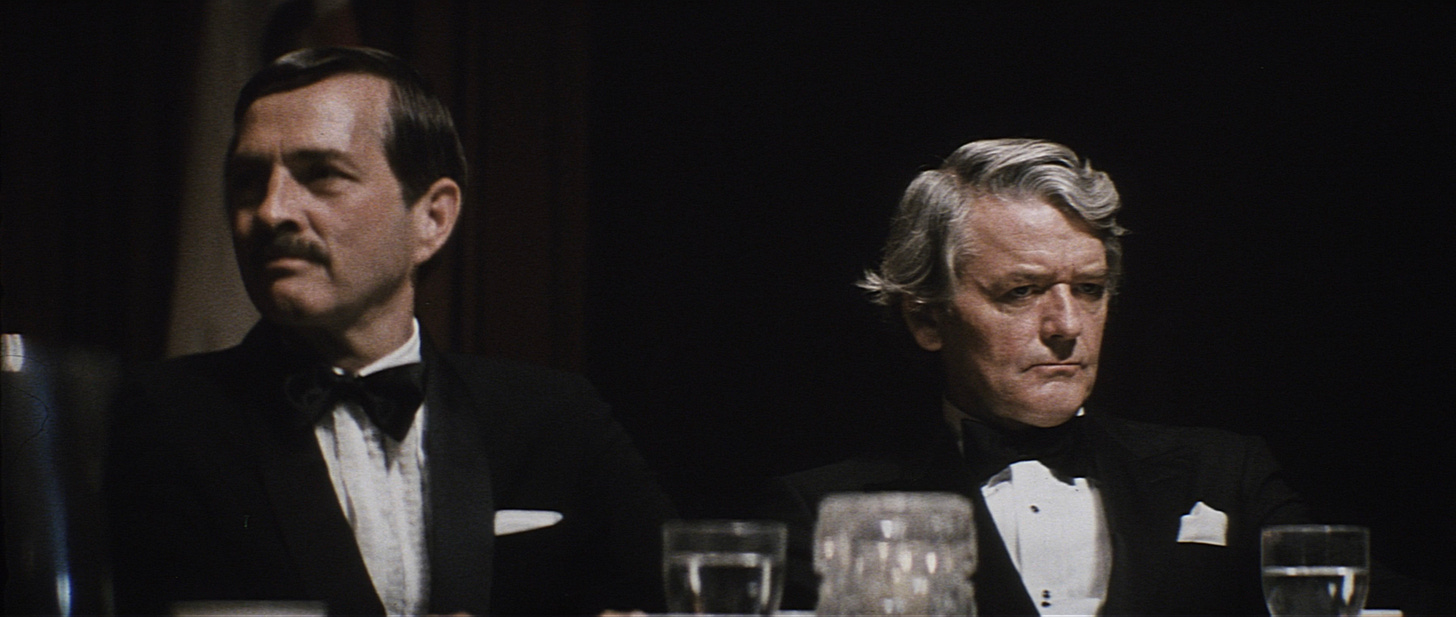Five-Star Three-Star Cinema Club #4: The Star Chamber
A few words about technicalities
Welcome to my recurring Five-Star Three-Star Cinema Club column, in which I am out in search of that rare delight: the five-star three-star movie. Inspired by my post about 1996’s Twister, and expanded upon in a follow-up post, the idea here is to build out a canon of movies that are not exactly great, and certainly not transcendent, but are great at being the exact kind of perfect mediocrity you sometimes crave on a Sunday afternoon.
This post is currently for paid subscribers only.
Peter Hyams has his shooters. I’m not exactly one of them, though maybe I need to work on that. Hyams is best known for Capricorn One, Outland, and 2010: The Year We Make Contact (and for being the father of Universal Soldier: Regeneration director John Hyams). Something like a journeyman, Hyams has picked up a reputation in some corners for his incredible eye. An eye so good, he eventually became his own cinematographer. For something like two decades, he pumped out reliably handsome productions of often trashy material, making an art of the three-star movie. No surprise, then, that he ends up here, the subject of another Five-Star Three-Star Cinema Club entry.
The film in question: The Star Chamber. Michael Douglas is a young Los Angeles judge, Steven Hardin, almost zealously devoted to the letter of the law in a crime-ridden city tearing itself apart at the seams. In two separate cases, Hardin follows clear precedent leading to dismissal of charges against obviously guilty parties having committed heinous crimes. Frustrated by both the limits of the law as a neutral arbiter of justice, and the moral weight he carries as its adjudicator, Hardin is pulled into a conspiracy of judges exacting extralegal justice on those criminals unduly protected by the law. Things quickly spiral out of control.
There is such thing as good conservative art, and it often comes in the form of movies like The Star Chamber, whose paranoid world view is born out of a sense of social collapse. It’s a conservatism recognizable in the work of Clint Eastwood, for example, a filmmaker whose right-wing, libertarian leanings reflect a society lacking a spiritual core rather than any bigotry or will to dominate. This sort of conservativism is often the domain of self-described liberal filmmakers, who nonetheless twist real societal ills into hysterical fantasies. The solution rests, ultimately, on the individual who sees the world clearly. The Star Chamber depicts a dystopian L.A. in which depraved serial killers are let off because of arcane technicalities. But its suspicion of systems and bureaucracy is also matched by a mistrust of authoritarian power. Hardin sits between these polarities, the man who recognizes the need for a deeper commitment to traditional values of law, morality, and good, hard work.
The Star Chamber is a perfectly fitting cross between crime and legal dramas, with a descent into conspiracy thriller, and in a lot of ways feels like an ‘80s movie that forgot it’s not the ‘70s anymore. It’s a movie filled with great faces. Douglas, of course, but also rougher faces, like Hal Holbrook, and Yaphet Kotto, and Larry Hankin, and Don Calfa, and on, and on. It’s shot halfway like Dog Day Afternoon and halfway like Gordon Willis on steroids. Out of the crosscurrent, Hyams produces a film at once heightened in its gritty crime hysteria and grounded in a sense, however thin, of moral seriousness. If it can’t reach the heights of those actually great films of the ‘70s—All the President’s Men and Klute, this ain’t—The Star Chamber nonetheless tickles similar nerves. At the same time, its got one foot planted firmly in a more, generously speaking, pure sene of entertainment. The silliness of the plot, the sensationalism, sometimes put it in the realm of a thinking man’s Death Wish. Hyams’ movie is one whose veneer of sophistication is held up by the spit-and-duct-tape of a less morally queasy ending than that Charles Bronson reactionary classic, and a far more interesting, expressionistic style.




